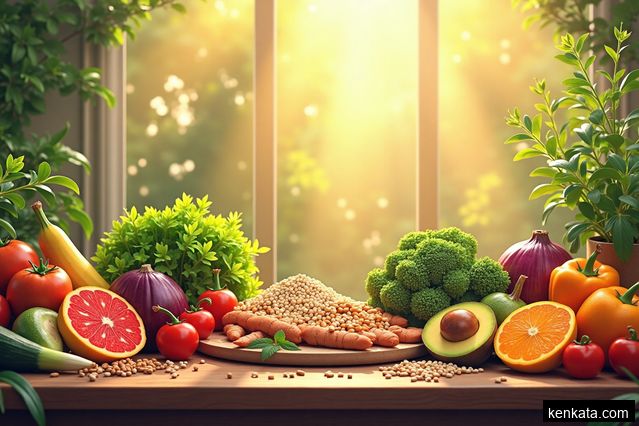The Importance of a Balanced Diet
A balanced diet plays a crucial role in maintaining good health and well-being. It provides your body with the necessary nutrients, vitamins, and minerals it needs to function properly. By including a variety of food groups in your diet, such as fruits, vegetables, whole grains, lean proteins, and healthy fats, you can ensure you're getting a wide range of essential nutrients.
Choosing Nutrient-Rich Foods
When it comes to nourishing your body, it's essential to prioritize nutrient-rich foods. These are foods that are packed with vitamins, minerals, and antioxidants, which are essential for maintaining optimal health. Examples of nutrient-rich foods include leafy greens, berries, nuts, seeds, fish, and legumes. Incorporating these foods into your diet can provide numerous health benefits and support your overall well-being.
The Impact of Nutrition on Overall Well-being
Proper nutrition has a significant impact on your overall well-being. When you fuel your body with nutritious foods, you give it the necessary tools to function optimally. A balanced diet and proper nutrition can help improve energy levels, enhance mental clarity, support immune function, promote healthy digestion, maintain a healthy weight, and reduce the risk of chronic diseases.
The Role of Micronutrients
Micronutrients, such as vitamins and minerals, are essential for various bodily functions. They play a crucial role in supporting your immune system, maintaining healthy bones and teeth, promoting proper brain function, and facilitating the metabolism of macronutrients. Including a variety of fruits, vegetables, and whole grains in your diet can help ensure you're getting an adequate intake of these essential micronutrients.
The Power of Hydration
In addition to a balanced diet, proper hydration is also vital for optimal health. Water is essential for maintaining bodily functions such as digestion, nutrient absorption, temperature regulation, and detoxification. It is recommended to drink at least eight glasses of water per day, but individual needs may vary depending on factors such as activity level and climate.
Hydrating Foods
Incorporating hydrating foods into your diet can also contribute to your overall hydration levels. Fruits and vegetables with high water content, such as watermelon, cucumbers, oranges, and strawberries, can help keep you hydrated throughout the day. Additionally, herbal teas and infused water can provide a refreshing and flavorful way to increase your fluid intake.








